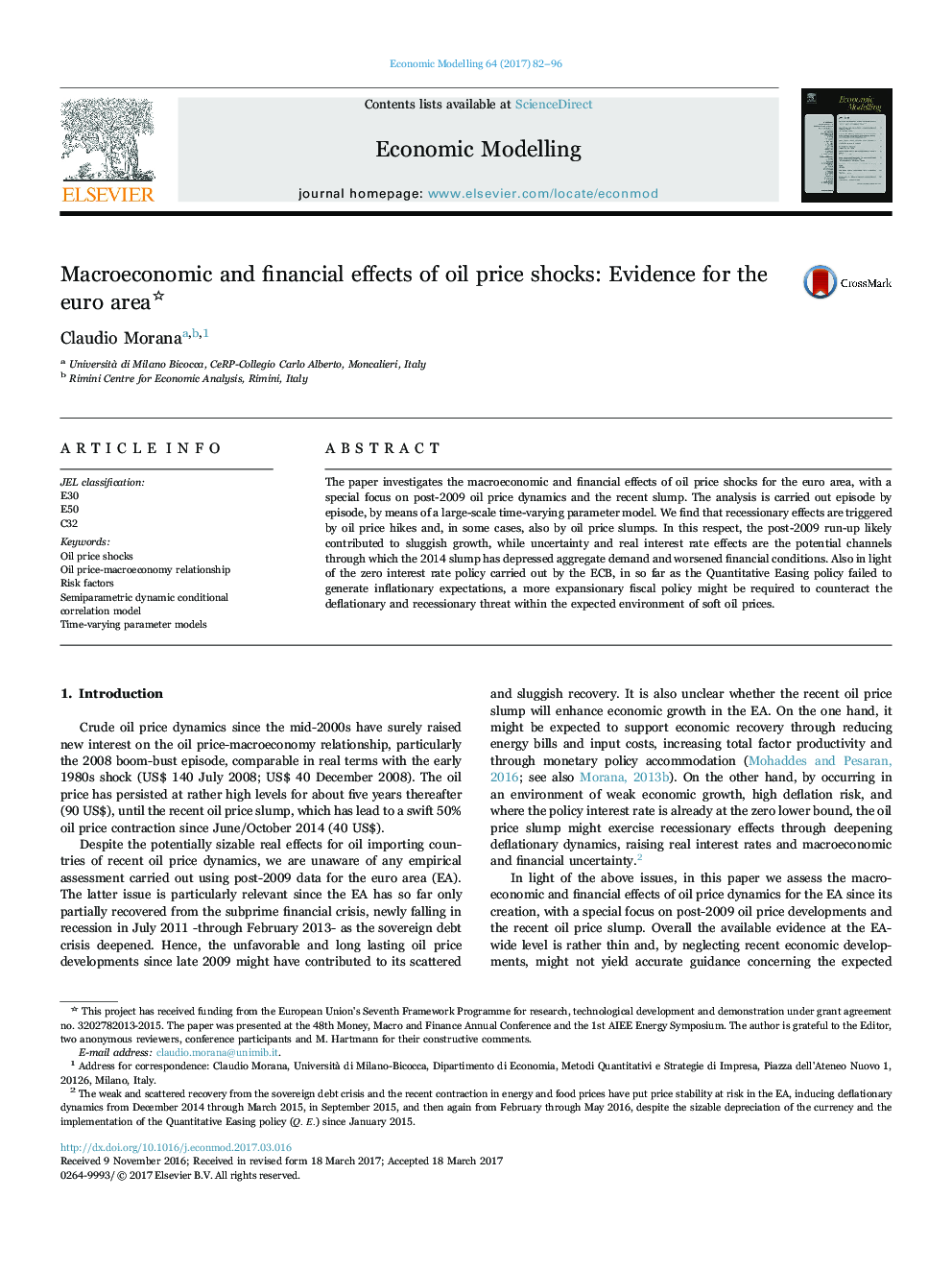| Article ID | Journal | Published Year | Pages | File Type |
|---|---|---|---|---|
| 5053135 | Economic Modelling | 2017 | 15 Pages |
Abstract
The paper investigates the macroeconomic and financial effects of oil price shocks for the euro area, with a special focus on post-2009 oil price dynamics and the recent slump. The analysis is carried out episode by episode, by means of a large-scale time-varying parameter model. We find that recessionary effects are triggered by oil price hikes and, in some cases, also by oil price slumps. In this respect, the post-2009 run-up likely contributed to sluggish growth, while uncertainty and real interest rate effects are the potential channels through which the 2014 slump has depressed aggregate demand and worsened financial conditions. Also in light of the zero interest rate policy carried out by the ECB, in so far as the Quantitative Easing policy failed to generate inflationary expectations, a more expansionary fiscal policy might be required to counteract the deflationary and recessionary threat within the expected environment of soft oil prices.
Related Topics
Social Sciences and Humanities
Economics, Econometrics and Finance
Economics and Econometrics
Authors
Claudio Morana,
